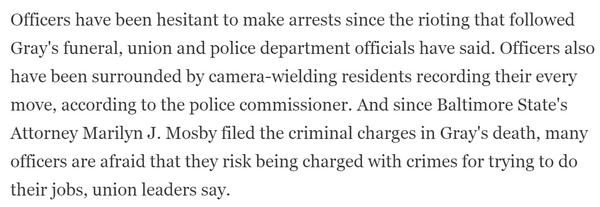All of us can, at most, “Strive for Truth” [It’s a borrowed title], and so I appreciate Rabbi Shafran’s clarification of his position. And to the best of my recollection, there hasn’t been a back & forth discussion/argument of this nature on Cross-Currents in over a decade, much as different authors often disagree. The more one reads Cross-Currents, the more the reader recognizes that the Orthodox are hardly the monolith they are often portrayed to be; a debate of this nature just makes this as explicit as possible, and thus where Rabbi Shafran and I emphatically agree is that this is a positive dialog for several reasons.
I see no reason to depart from Rabbi Shafran’s enumeration of my points, and I’ll let people respond to both articles in the comments below.
1) My point was that there seemed no need for Rabbi Shafran to wander down this road, especially considering the tenuous ground upon which his arguments stand. Oren only confirmed what those of us who have followed the news reports carefully have seen for years. As Rabbi Shafran conceded, the egregious omission of Israel in the countries rushing to provide aid to Haiti — that and that alone — disturbed him greatly, and “seemed to contradict” his “positive judgment of Mister Obama’s regard for Israel.”
As described by Oren’s close friend, Yossi Klein Halevi, Oren had a good reason to release this book now:
Michael Oren is one of the most selfless public servants of the Jewish people I’ve been privileged to know. And he wrote “Ally” for one overriding reason: to challenge Obama on Iran. That’s why he timed its release just before the deadline for concluding the Iranian negotiations. His explicit intention was to call into question the credibility of the President of the United States when he repeatedly declares that he has Israel’s back. Not because Michael believes that President Obama hates Israel or wishes us harm, but because Michael believes ““ as do I ““ that the President’s Iranian policy is placing Israel under existential threat. “Ally” is Michael’s cry of alarm ““ the culmination of a commitment that we began together in 2006, when we co-authored an article for the New Republic warning against American complacency toward a nuclearizing Iran.
2) The quote, in context, reads “The first principle was ‘no daylight.’ The U.S. and Israel always could disagree but never openly. Doing so would encourage common enemies and render Israel vulnerable.” In context, Oren made an error of semantics. It is extremely well-known that the United States, for example, disapproved of the expansion of settlements, and said so. Could Michael Oren, familiar as he was with the history of the US-Israel relationship, argue that all of Reagan, Bush I, Clinton and Bush II had not said so publicly? No.
What was Oren actually saying? Let me use one example from the book.
Ramat Shlomo is a neighborhood on the northern outskirts of Jerusalem, and unquestionably one of those neighborhoods included in Bush’s letter as part of Israel. In 2010, as Joe Biden came to Israel, the Interior Ministry approved a plan to build 1600 new housing units. The plot of land lies in between Ramat Shlomo and the green line, between HaRav Rephael Toledano Street and Yigal Yadin (Route 1). In “Ally,” Oren describes how he and everyone else in the administration was as surprised as the Americans. From pp 137-139:
Finally, close to two a.m., Ron Dermer and I ran with a handwritten draft to the hotel lobby where [US Ambassador to Israel] Dan Shapiro waited peevishly. He visibly brightened, though, when he read our assurances. We typed them up in the business center and went upstairs for a few hours sleep.
The air itself felt supercharged the following day as the vice president rose to the Tel Aviv University podium. He spoke about feeling at home in the Jewish state, about the “unbreakable bond… impervious to any shifts,” between it and the United States… But then he turned to the Ramat Shlomo plan, which, he said, undermines the trust required for productive negotiations. ‘At the request of President Obama, I condemn it immediately and unequivocally.’
Some left-wing students clapped at this as well, but other Israelis seethed. Diplomacy provides a word-scale for expressing levels of displeasure, beginning with regret and disapprove and escalating to denounce and deplore. But the harshest of all is condemn. “the administration never condemned Iran for killing its own people,” Ron muttered, “but Israel gets condemned for building homes in a Jewish neighborhood in our capital city.”…
I… boarded a plane and arrived in the United States at five o’clock Friday morning to learn that Secretary of State Clinton had excoriated the Netanyahu for forty-five minutes over the phone, rebuking him for humiliating the president and undermining America’s ability to deal with pressing Middle East issues… And then I heard that the State Department, protesting “the deeply negative signal about Israel’s approach to the bilateral relationship,” had summoned me to an immediate meeting.
As in the case of the word condemn, diplomacy provides a calibrated lexicon to describe requests for high-level meetings. The scale descends from the amicable “respectfully invited” to the more neutral “asked to come.” The lowest, by far, is “summoned.”
That is what Oren was talking about, and it remains unrebutted. Rabbi Shafran harped on Oren’s poor word choice, while leaving the veracity of his point unchallenged.
3) I do not understand Rabbi Shafran’s claim that the change and tenor “is Mr. Oren’s judgment only.” The Bush posture acknowledged that Israel would not leave the entirety of the West Bank: “it is unrealistic to expect that the outcome of final status negotiations will be a full and complete return to the armistice lines of 1949.” The unwritten subtext approved Israel building in existing Jewish neighborhoods and settlements. The Obama State Department explicitly disavowed the Bush letter, and, as above, Obama launched a full-scale verbal assault on Israel, using “condemn” and “summoned” to publicly express extreme disapproval. If this had precedent, neither Rabbi Shafran nor any of Oren’s other critics have shown us where.
4) Whether or not the US has an obligation to inform Israel was never under discussion. Oren, as the Ambassador of Israel to the United States, certainly knew the history of communication between the two countries, and has found Obama’s refusal to communicate with Israel and ongoing concern — especially when it comes to a nuclear Iran.
5) Note that the Dominican Republic is connected to Haiti; they share a common island. According to Oren’s account, Israel ambassador to the Dominican Republic was the first official to come to Haiti following the quake, along with an advance team to find a site for Israel’s hospital.
But here, again from the book, is Oren’s fuller description of what happened, from pp. 131-133:
The Clash, ironically, was preceded by a real disaster ““ and a moving display of US-Israel harmony. It began on January 14, forty-eight hours after a massive earthquake devastated Haiti. Vast swaths of the impoverished Caribbean country lay in ruins, with at least 150,000 dead. With its war-born experience in dealing with casualties, its expert medical teams, and its biblical traditions of caring for the week, Israel responded. More than 200 Israelis, he many of them volunteers from the IsraAID relief organization, immediately took off for Haiti and set up the first completely equipped hospital unit. Yet the operation could not have been mounted without the logistical assistance of the United States. Some of the Israelis even slept in shares at the US Embassy. Throughout, I was on the phone around the clock with the State Department, coordinating our joint efforts.
So again, Oren knew what the real situation was, because he was intimately involved. He knew that the Americans were quite well aware that what Israel was doing was on an entirely different level than any of the countries that made Obama’s list, up to and including the US itself — in the words of one American doctor, “it’s something that almost makes you embarrassed to be an American” when he compared Israel’s hospital effort to their own.
None of the critics have challenged any of Oren’s facts, because they cannot.



 The Sifsei Chachamim points out that this is a unique moment. It was forbidden to leave the Temple Mount wearing those unique garments — so why was Aharon told to ascend the mountain in them, and Elazar to return wearing them?
The Sifsei Chachamim points out that this is a unique moment. It was forbidden to leave the Temple Mount wearing those unique garments — so why was Aharon told to ascend the mountain in them, and Elazar to return wearing them?
